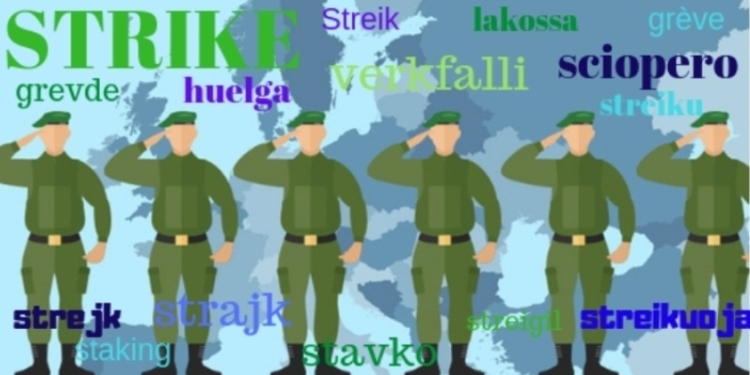EUROMIL Adopts a Position Paper on the Right to Strike
EUROMIL Presidium Members adopted a position paper on the right to strike in April 2020.
Recently, the European Committee of Social Rights (ECSR) took a clear position on the right to strike for members of the armed forces in its decisions on the cases of EUROMIL v. Ireland (112/2014) and CGIL v. Italy (140/2016). In the Italian case, the ECSR found a violation of Art. 6§4 of the European Social Charter. Convinced that the right to strike is not an obvious right in the military but reacting to these recent decisions, EUROMIL’s Presidium Members accepted by majority vote a Position Paper on the Right to Strike, stating among others that an implementation of the Right to Strike may be provided through social dialogue and collective bargaining in the armed forces.
“We know that the right to strike in the military can shock some people, and not least within the military. For EUROMIL this issue was never a priority, but the decision of the ECSR is clear” EUROMIL’s President Emmanuel Jacob said. “Let’s compare it with nuclear weapons. Everybody knows who has them and where they are, but nobody wants to use them. But they are often the deciding factor in finding diplomatic solutions. In our position paper the diplomatic solution is the social dialogue and collective bargaining to avoid this right. A strike is not a goal in itself but a deterrent tool” Jacob argued.
Important to remark is that beside trade unions, EUROMIL has member associations in countries where soldiers are banned from joining trade unions but can be members of a (professional) association. Asked on the definition of a trade union or an association, the ILO answered EUROMIL in 2017: “For the ILO there is NO difference between terms used, as long as these bodies have the objective of furthering and defending the interest of workers.” This difference is also reflected in EUROMIL’s Charter: “EUROMIL is an organisation of free democratic military associations and Trade Unions. In this Charter both referred to as military associations.”
The position paper is available here.

